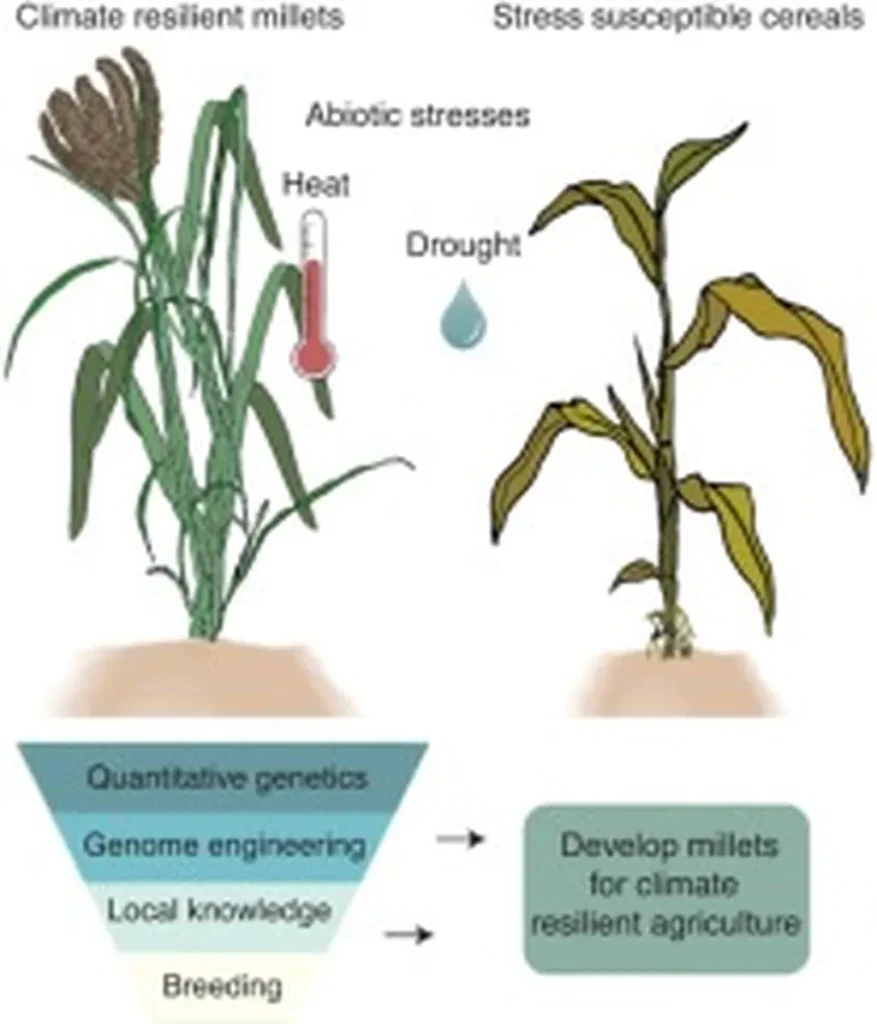In the face of escalating climate challenges, a groundbreaking study published in the ‘Journal of Global Innovations in Agricultural Sciences’ (translated from Arabic as ‘Journal of Global Innovations in Agricultural Sciences’) sheds light on the critical impact of water stress on proso millet, a vital crop in semi-arid regions. Led by Muna Aied Yousif, this research delves into the intricate dynamics of water scarcity during the pre- and post-flowering stages of proso millet, offering insights that could revolutionize agricultural practices and bolster food security.
Proso millet, a hardy member of the Poaceae family, has long been a staple in regions prone to drought. However, the study conducted at Samarra University’s College of Agriculture reveals that even this resilient crop is not immune to the ravages of prolonged water stress. By subjecting millet plants to varying irrigation intervals—4, 7, and 14 days—the researchers uncovered stark differences in growth and productivity.
“Water shortages significantly impacted millet plants during both pre- and post-flowering stages,” Yousif noted. The findings were unequivocal: extending the irrigation interval to 14 days led to a dramatic decline in plant height and total dry weight, with reductions of 57.44% and 69.07% respectively, compared to the control group. The post-flowering stress group fared even worse, with panicle number per plant, 1000-grain weight, panicle length, grain yield per plant, and drought resistance index all showing substantial declines.
The implications of this research are profound, particularly for the energy sector, which is increasingly intertwined with agricultural practices. As global warming and carbon emissions continue to escalate, the need for drought-resistant crops becomes ever more pressing. Proso millet, with its relatively high tolerance to water stress, could emerge as a key player in sustainable agriculture, especially in semi-arid regions where water resources are scarce.
The study’s findings suggest that regular irrigation, particularly every four days, yields the best results for all traits. This underscores the importance of water management strategies that ensure consistent water availability, even in the face of erratic rainfall patterns.
As we grapple with the realities of climate change, research like Yousif’s offers a beacon of hope. By understanding the nuances of water stress on crops like proso millet, we can develop more resilient agricultural systems that are better equipped to withstand the challenges of a warming world. This study not only highlights the critical need for sustainable water management but also paves the way for innovative solutions that could transform the future of agriculture and energy.
In a world where food security is increasingly under threat, the insights gleaned from this research could be the catalyst for a new era of agricultural innovation, ensuring that we can feed the planet sustainably and efficiently, even in the face of adversity.

